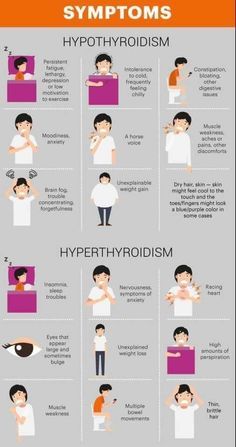Hyperthyroidism, a condition where the thyroid gland produces excessive thyroid hormones, can significantly impact your health and well-being. This overactive thyroid can lead to symptoms such as weight loss, rapid heartbeat, anxiety, tremors, and fatigue. Fortunately, there are various treatment options available that can help manage and control hyperthyroidism. Here's an overview of the most common hyperthyroidism treatments and what to expect from them.
Understanding Hyperthyroidism
Before diving into treatment options, it's important to understand what causes hyperthyroidism. The most common cause is Graves’ disease, an autoimmune disorder that overstimulates the thyroid. Other causes include thyroid nodules, thyroiditis (inflammation of the thyroid), and excessive iodine consumption. Once diagnosed through blood tests and imaging, your healthcare provider will recommend the most appropriate treatment based on the severity of your condition and your overall health.
Treatment Options for Hyperthyroidism
Antithyroid Medications
Antithyroid drugs such as Methimazole and Propylthiouracil (PTU) are commonly prescribed to reduce thyroid hormone production. These medications are effective for many patients, particularly those with mild to moderate hyperthyroidism. Methimazole is typically preferred due to fewer side effects, while PTU may be used in pregnancy or in certain other situations.
Benefits: Reduces thyroid hormone production, helps normalize thyroid levels.
Drawbacks: Long-term use is required, and some patients may experience side effects like rash, liver damage, or a drop in white blood cells.
Radioactive Iodine Therapy
Radioactive iodine (RAI) therapy is a commonly used treatment for hyperthyroidism. The patient ingests a dose of radioactive iodine, which is absorbed by the thyroid gland, gradually destroying overactive thyroid cells. This treatment is highly effective and can result in long-term control of thyroid hormone levels.
Benefits: Non-invasive, highly effective at controlling hyperthyroidism.
Drawbacks: May cause hypothyroidism (underactive thyroid), requiring lifelong thyroid hormone replacement therapy. Not recommended during pregnancy or breastfeeding.
Beta-Blockers
While not a direct treatment for hyperthyroidism, beta-blockers like Propranolol or Atenolol are often prescribed to help manage symptoms such as rapid heartbeat, tremors, and anxiety. They do not affect thyroid hormone levels but provide relief from the physical effects of hyperthyroidism.
Benefits: Provides quick symptom relief while other treatments take effect.
Drawbacks: Does not treat the underlying thyroid condition, must be used in conjunction with other treatments.
Thyroidectomy (Surgery)
In some cases, particularly when other treatments are ineffective or not viable, thyroid surgery (thyroidectomy) may be recommended. The surgeon removes part or all of the thyroid gland, which significantly reduces hormone production.
Benefits: Permanent resolution of hyperthyroidism, suitable for patients who cannot tolerate medications or RAI.
Drawbacks: Potential complications include damage to the vocal cords or parathyroid glands, which control calcium levels in the body. Surgery may also result in hypothyroidism, requiring lifelong hormone replacement.
Lifestyle and Dietary Adjustments
Alongside medical treatment, lifestyle and dietary changes can help manage hyperthyroidism. Limiting iodine intake, especially from sources like iodized salt and seafood, can be beneficial in some cases. Managing stress, practicing mindfulness, and maintaining a balanced diet rich in vitamins and minerals also support thyroid health.
Benefits: Helps complement medical treatment and supports overall well-being.
Drawbacks: Cannot replace medical treatment but can be used as a supplementary approach.
Monitoring and Follow-Up Care
Regardless of the treatment chosen, ongoing monitoring of thyroid function is crucial. Regular blood tests help ensure that thyroid hormone levels remain within a normal range. For those who develop hypothyroidism after treatment, thyroid hormone replacement therapy will be needed. It's essential to maintain an open line of communication with your healthcare provider to adjust treatments as needed and address any new or lingering symptoms.















